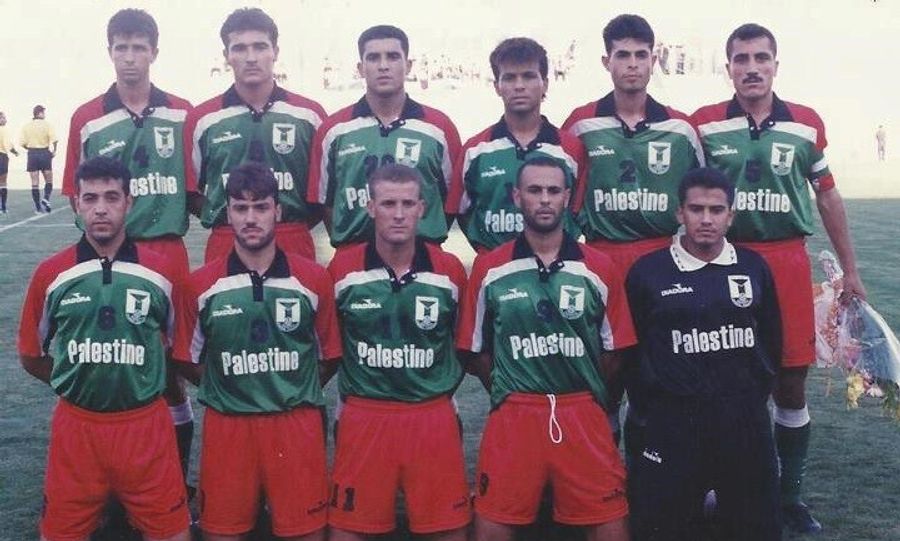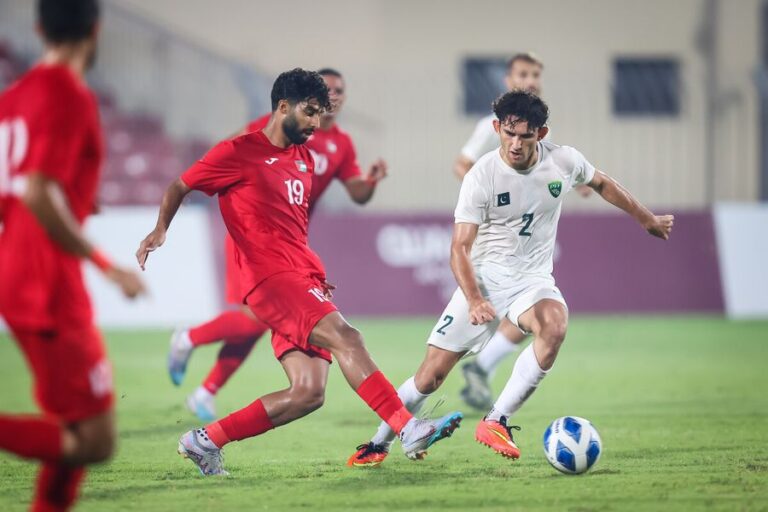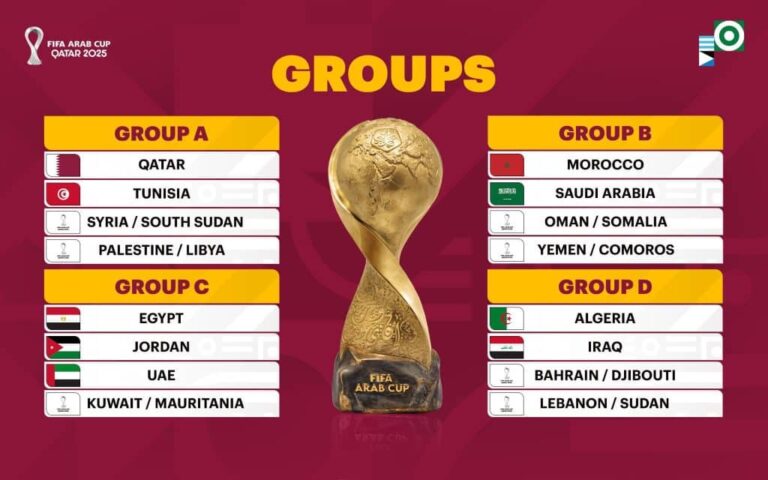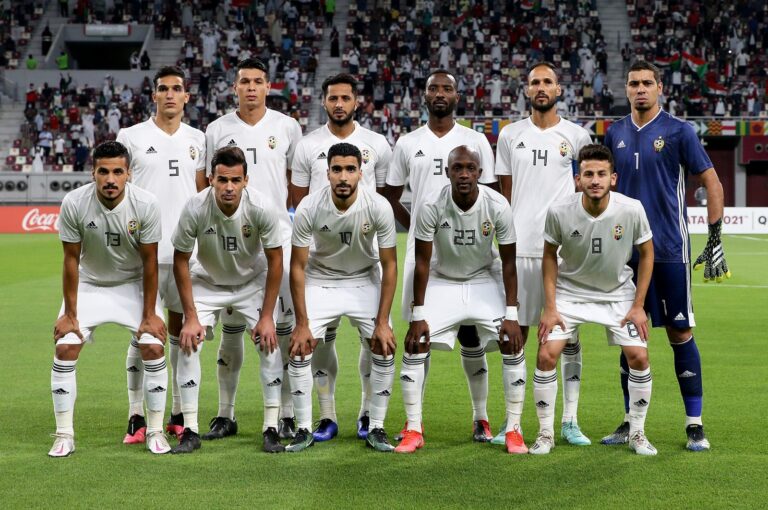July 20th, 1998. Beirut. Arab Cup Qualification. Palestine’s first fully recognized international. Except- that is not quite the entire story.
There is not a single Arab nation on the Asian continent with a football history as robust as Palestine’s. The wait to join FIFA and compete in real matches was a long and arduous one. Influenced by politics and an obstinate refusal on behalf of FIFA to recognize that the original Palestine Football Association (PFA)- founded in 1928- had been usurped to represent only Jews in Mandatory Palestine.
The first football game in Palestine was played in 1908 on the grounds of the St. George’s School in Jerusalem where St. George’s played against their fellow schoolboys from Rawdat Al-Maaref. Twenty years later, the head of the Maccabiah sports organization successfully convinced FIFA to allow Palestine to join- agreeing to a stipulation that all communities be represented. Earlier attempts had been foiled due to the exclusionary policies of the Maccabiah. The latest attempt- in 1926 had also been rejected because there were no qualified Jewish referees in the country.
The only qualified referee was Ibrahim Nussiebeh whose name was put on an application sent to FIFA in 1928. That very same application stated there were nearly six dozen teams under the auspices of Yosef Yekutieli (President of the Maccabiah) when in reality there were only six Jewish teams in the entire country. In spite of the lies, Yekutieli’s application was accepted in December 1928 and Palestine joined FIFA on a trial basis.
In the following three years, Palestinian football would flourish while the Yekutieli’s PFA would fail to organize a single tournament. The Palestine Sports Federation (PSF) was created in 1931- along with the first Palestinian national team. The threat of the PSF replacing the dormant and ineffectual PFA in the halls of FIFA was so great that Yekutieli waged a covert war against it. In written appeals to the governing body he prevented the aspiring Lebanese and Syrian football associations from playing against teams fielded by the PSF.
Palestine would of course go on to play many matches in the six decades before FIFA finally came to its senses. 31 matches were contested by Palestine in competitions like the Pan Arab Games, Arab Cup, and Palestine Cup. Those games include a fourth place finish at the 1965 Pan Arab Games, a 7-2 hammering of Qatar at the 1972 Palestine Cup, and a 2-1 win over Jordan (the only one to date) at the 1976 Arab Cup.
A record of 7W-7D-17L for a national team with no league, funding, or recognition in those years from 1953 to 1997 is actually quite the feat in retrospect. What was even more impressive were some of the talents Palestine produced- Ibrahim Mughrabi was the first foreign player to play in Greece (playing for AEK Athens in 1962-63), Marwan Kanafani was Al-Ahly’s starting GK for the better part of a decade complemented by the overlapping runs and set piece prowess of fullback Fouad Abu Ghaida that many Egyptian fans still recall to this day.
There is not much to recall about the match that kicked off the modern era. Palestine were at sixes and sevens as evidenced by the highlights. The consolation goal scored by Ibrahim El-Manasri is nowhere to be found.
Palestine did improve in the following matches although results meant that they did not qualify for the 1998 Arab Cup finals. A 3-1 loss to Lebanon led to a 2-1 loss to Syria, which led to a 1-1 draw to Jordan.
Those results would give prove important stepping stones for the next year Pan Arab Games. Palestine got its first win over Qatar (although strangely that game is not in FIFA’s record books) and then followed that up with another 1-0 win over the United Arab Emirates en route to the bronze medal.
The next year Palestine failed to qualify for the 2000 AFC Asian Cup but they got their maiden win in the qualifying tournament, beating Pakistan 2-0. Ibrahim Al-Manasri once again making history by scoring the first goal in Palestine’s ACQ history.
World Cup qualification in 2001 went a lot better than expected. Palestine played all their games away but were in serious contention. Palestine’s first World Cup qualifier ended in a 1-1 draw against Hong Kong courtesy of an Emad Ayoub goal. Four days later Emad Ayoub scored an equalizer against Qatar- in a game Al-Enabbi won 2-1. A pair of 1-0 wins over Hong Kong and Malaysia meant Palestine could go joint top if they beat Qatar in their penultimate qualifier. Once again Emad Ayoub equalized but the match ended once again in a 2-1 win for the Qataris.
In the early years, Palestine’s national team were known as Al-Fursan (The Knights) but the indomitable fighting spirit showcased by the players led to a name change. No one knows exactly when it happened but Al-Fida’i seemed a more apt nickname.
In 2002, Palestine started mining the diaspora for talent and in 2002 a slew of South American based players came into the team: Roberto Kettlun, Roberto Bishara, Edgardo Abdala, Pablo Abdala, Leonardo Zamora, and Francisco Alam dovetailed nicely with a core of existing players. The team were the great entertainers of the 2002 Arab Cup and although they would end their 2004 Asian Cup qualification campaign without a win there was a sense that the national team was progressing.
The 2006 World Cup qualification campaign started with a bang. The 8-0 win over Chinese Taipei, remains Palestine’s largest margin of victory in a World Cup qualifier. In the next match day- Palestine went top of the group courtesy of a 1-1 draw against Iraq. Looking back at his free kick goal that delivered that famous result, Roberto Kettlun actually rued the fact that the team was not able to win as they had outplayed them- wreaking havoc on the counter.
Palestine’s back to back losses to Uzbekistan dented any hope of progression in World Cup qualification and the subsequent draw for 2007 Asian Cup qualification once again landed them in the group of death. 2004 finalists China, eventual champions Iraq, and Singapore stood in Palestine’s path. A point against the top two teams was all Palestine’s could manage.
Just when it seemed things were about to progress to the next level. Palestinian football stalled. Disorganization and the increasing menace of Israeli occupation resulted in 2010 World Cup qualification lasting one game.
After flexing their muscles in the inaugural 2006 AFC Challenge Cup. Palestine failed to enter or qualify for editions in 2008 and 2010. The dream of an Asian Cup finals seemed far away. The national team achieved its best FIFA ranking in May 2006 (115th) but in February 2009 was ranked 180th- its worst ranking in over a decade.
Between April 2006 and March 2011 Palestine played a paltry 22 games- with only three competitive fixtures between them. Five different coaches led the national team- not one could deliver a win in that time frame. A meager nine goals were scored, a whopping 41 were conceded. Palestine’s record: 0W-8D-14L
While Moussa Bezzaz did manage to qualify the team for the 2012 AFC Challenge Cup and guide them past Afghanistan in World Cup qualification- the team could not overcome Thailand in Round 2. Palestine were adrift. Three months later a team with no manager was sent to Iran for a friendly. They lost 7-0. The scoreline flattered them.
From that nadir a phoenix emerged. Not enough is written about Jamal Mahmoud’s impact on Palestinian football but if not for the PFA appointing the Hilal Al-Quds coach we might not be where we are today. In the space of two months, the team that lost 7-0 to Iran beat Bahrain 1-0 in a friendly. They drew and beat AFCON finalists Libya and Sudan to progress out of their group at the 2011 Pan Arab Games en route to a fourth place finish.
In February 2012, Palestine beat a UEFA opponent for the first time (2-0 v Azerbaijan). It seemed like the team could win the 2012 AFC Challenge Cup and qualify for the 2015 finals. That dream was extinguished by North Korea who were still classified as an emerging FA in spite of qualifying for the 2010 FIFA World Cup.
Mahmoud and the team continued to work towards their goal on the fringes of international football. Ashraf Nu’man became a continental star on his watch but the team seemed to be constantly hitting a glass ceiling.
There was a famous 2-2 draw vs. Saudi Arabia at the 2012 Arab Cup but no knockout football, a maiden win at the WAFF Championship in 2012 (1-0 vs Lebanon) but no progression from the group stage, a valiant display against Qatar (who won with a last gasp winner) and another draw vs Saudi Arabia at the 2014 edition.
So when the 2014 AFC Challenge Cup finals rolled around it did not seem like Palestine could actually win it. Other teams were better prepared and had more resources behind them but Palestine did qualify. Sixteen years after their first FIFA recognized match, 61 years after their unofficial debut, and 86 years since the ascension of the PFA- headed by impostors- to FIFA, Palestine had achieved success. Qualifying to a sixteen team AFC Asian Cup for the first time in its history.
Nearly a decade on from that achievement and a quarter century removed from Lebanon 3:1 Palestine its worth noting that progression is never linear.
It has been a long and winding road for Palestine. One that has been marked by more defeats than victories. More goals conceded than goals scored but one that has the team solidly placed in Asia’s second tier of national teams.
If the rate of progression is anything like what we have witnessed over the last 25 years- football in Palestine could continue to flourish. I for one, look forward to what is yet to come.




